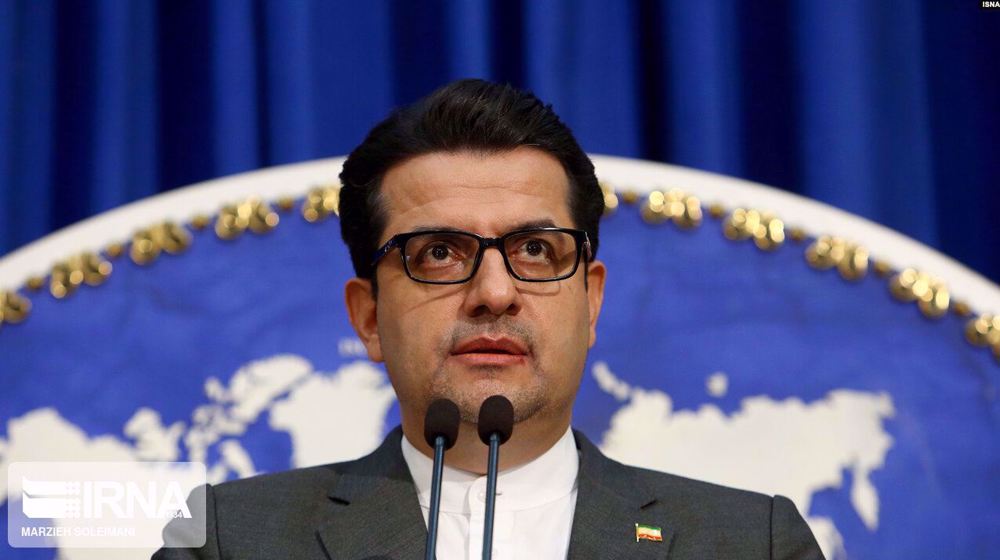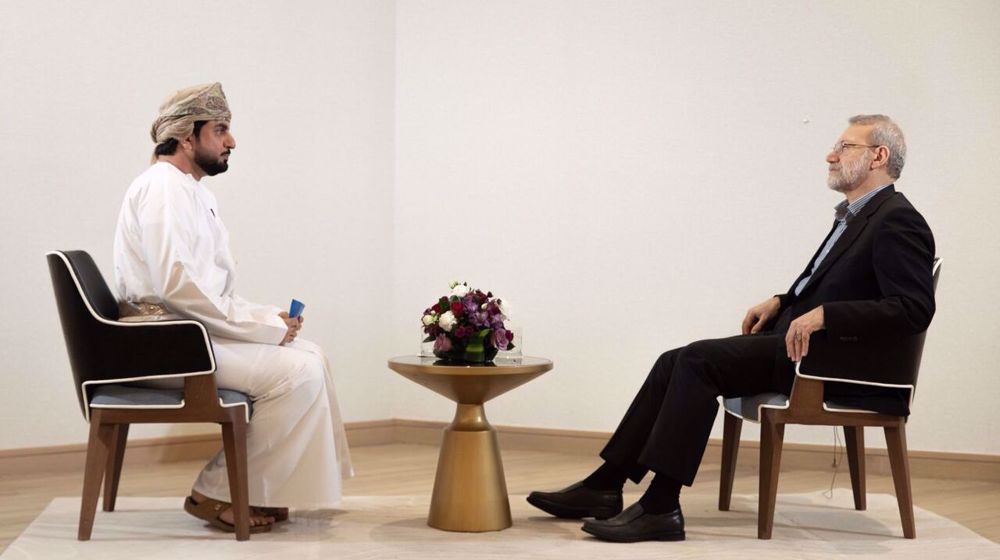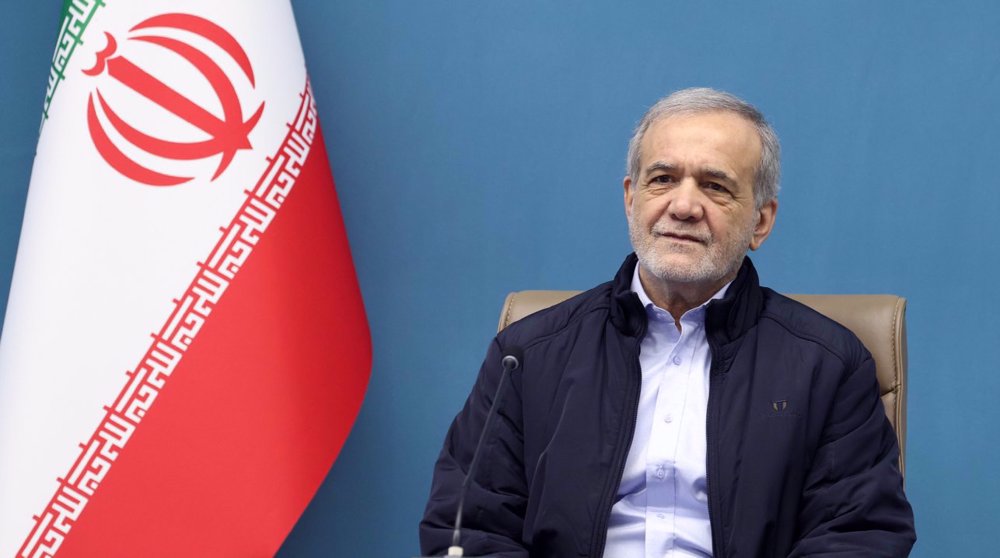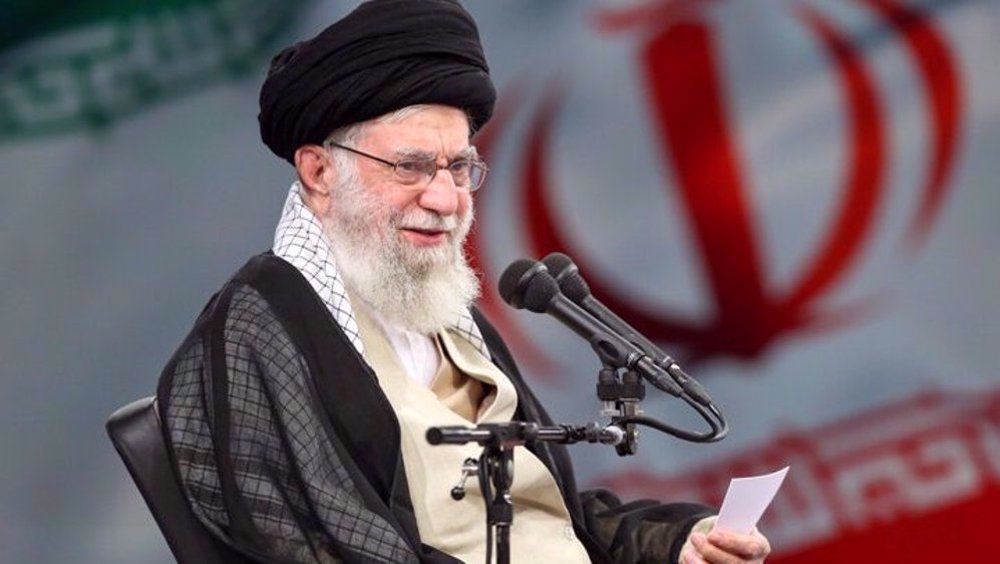Iran advises against politicization of Lebanon tragedy
Iran's Foreign Ministry says the tragic explosion that recently shook Beirut and its aftermath should not be used by any party as a means of political exploitation.
“The incident was massive and it is natural for people to feel aggrieved and implications to follow,” Spokesman Abbas Mousavi told a press conference in Tehran on Monday.
He, however, said any judgment about the cause of the incident should be based on the results of a thorough investigation and called it “unacceptable” for various groups, individuals, and countries to use it as an excuse for their ill-intentioned political ambitions and goals.
“As it appears, some, who have been instigated from outside the country, harbor certain ulterior motives,” Mousavi said.
The Tuesday blast, caused by explosion of some 2,750 tons of ammonium nitrate at the Lebanese capital’s port, destroyed the country’s main grain silo, killing at least 158 people and injuring some 6,000 others.
The incident has been followed by protests across the city over the past two days. The rallies have featured large-scale rioting, occupation of ministries, and mass injuries.
Soon after the blast, French President Emanuel Macron visited Lebanon in what was widely seen as reminiscent of France’s colonial rule over Lebanon and foreign interference.
During an emergency donor conference in the wake of the tragedy, the French president openly called for “political” reforms in Lebanon.
The US has likewise backed “legitimate calls” for “reforms” in the country.
Iran's Foreign Ministry spokesman called such apparently sympathetic reactions “duplicitous,” adding that if those countries truly sought to help Lebanon out, they would first and foremost lift the sanctions they have imposed on the Lebanese people and government.
The US and its allies have brought Lebanon under sanctions over the inclusion of the resistance movement of Hezbollah in the country's official defense structure.
Washington and some of its allies have blacklisted the group that successfully defended the country against two Israeli wars in the 2000s, as a “terrorist organization.”
‘US seeking to subjugate Security Council’
The spokesman separately addressed efforts underway by the US to force the United Nations Security Council (UNSC) to extend an arms embargo against Iran.
The embargo on the sales of conventional weapons to Iran will expire on October 18 under UNSC Resolution 2231.
The resolution enshrines a 2015 nuclear deal between Iran and world countries that is officially known as the Joint Comprehensive Plan of Action (JCPOA).
Washington has already violated the resolution by leaving the deal.
It, however, claims that the resolution still names it as a nuclear deal partner, and is about to present the Security Council with another resolution aimed at extending the embargo.
Mousavi said the US bid represents a threat against the Security Council and its workings more than constituting a threat against the Islamic Republic.
“The Americans are seeking to use the Security Council to weaken and destroy it and are after subjugating the body,” he said.
He, however, said the Islamic Republic believes Washington's bid has little chance of success and hoped that the effort will be defeated as a result of “independent countries’ alertness and wisdom.”
British PM Keir Starmer faces calls to resign
Iran’s Kowsar satellite beams Islamic Revolution anniversary message across region
VIDEO | Press TV's news headlines
VIDEO | Indian regions celebrate Iran’s Islamic Revolution anniversary
Iran’s missile program will never be on negotiating table: Shamkhani
Hezbollah: 47 years of Iranian progress proof of ‘abject failure’ of Western plots
Iran’s Larijani meets Qatari emir amid nuclear talks with US
VIDEO | 47th anniversary of Islamic Revolution celebrated at Iran's Embassy to Holy See













 This makes it easy to access the Press TV website
This makes it easy to access the Press TV website